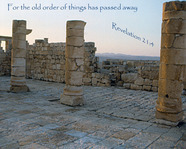Michael Duncan's Blog, page 3
September 6, 2013
My Hope America with Billy Graham
 If you live in the Pacific Northwest (and especially in the Puget Sound region) you will want to know about this great training workshop on Tuesday, September 10th at Northwest University. Below are the details. Share this with all your contacts as we strive to reach America with the gospel of Christ.
If you live in the Pacific Northwest (and especially in the Puget Sound region) you will want to know about this great training workshop on Tuesday, September 10th at Northwest University. Below are the details. Share this with all your contacts as we strive to reach America with the gospel of Christ.Dear Fellow Servant of Christ:
Greetings from the Billy Graham Evangelistic Association and the My Hope America project! Dr. Graham sends you his greetings also, and wants you to know that he is in continual prayer for you. I hope that this letter finds you well and that your summer has been filled with rest and renewal. With the summer drawing to a close, you have one last opportunity to learn about the My Hope America strategy for mobilizing churches to reach the lost through intentional, relational evangelism.
With My Hope America only two months away, the workshop will be coming once more to your community to prepare pastors and congregations for this historic evangelistic outreach. This will be the final invitation to you for the My Hope workshop, and I pray you will sense the Lord’s guidance and call to attend. This is a special opportunity as Bill Conard, the director of the My Hope project, will be here to share a message and a word from the Graham family.
A brief word about My Hope America: It is modeled after a strategy the BGEA has done in 57 countries over the past decade utilizing the media for nationwide television exposure of the Gospel, coupled with the power of relational evangelism through local churches. Since 2002, the My Hope strategy has produced greater fruit than the BGEA has seen in all its other strategies over the past fifty years. Now, Dr. Graham would love to see this take place in the
USA.
On November 7th, 2013 Dr. Graham will deliver his final message to America during a nationwide broadcast, as trained Christians across the country open their homes to unsaved friends and relatives in order to share the Gospel of Jesus Christ with them. Along with the nationwide broadcast, DVDs and downloadable internet videos will be available for alternate showings.
I ask you to come, receive this training and partner with Billy Graham to mobilize the churches of America in this national effort to share the Gospel. All are invited to come. Here are the details for this final preparation workshop:
Date/Time: September 10th, 2013
from 1:00pm - 4:00pm or 7:00pm - 9:00pm
Location: Northwest University (Chapel Building)
Address: 5520 108th Ave NE
City: Kirkland, WA
Please RSVP today for this free training session by calling 1-877-7MY-HOPE (1-877-769-4673). Or you can register online at www.myhopewithbillygraham.org. Click on the training events tab to
RSVP.
And check out the website for more information about My Hope America.
Looking forward to meeting you at the workshop!
Published on September 06, 2013 10:10
March 31, 2013
March 20, 2013
The Anonymous Servant of Christ
 Alone, unaided and filled with passion, the man pressed on to bring the message of Christ to those under the power of the enemy. His name is unknown—he is the anonymous servant of Christ. He never sought recognition and never clamored for fame.
Alone, unaided and filled with passion, the man pressed on to bring the message of Christ to those under the power of the enemy. His name is unknown—he is the anonymous servant of Christ. He never sought recognition and never clamored for fame.This man faced opposition. There were men who possessed positions of prominence and demanded that the man stop his activity. He was a rogue, an outsider. He didn’t have the sanction of their group and they demanded he “cease and desist.” You may be surprised at who demanded that he stop.
You may be thinking that I’m speaking of someone today. That in some remote region of the world a solitary figure is striking a blow at the gates of hell and paving the way for the Kingdom of Christ into the hearts of all who hear him.
“Teacher," said John, “we saw a man driving out demons in your name and we told him to stop, because he was not one of us” (Mark 9:38).
This is the anonymous servant – and it was the disciples who tried to stop him!
I wonder if there are anonymous servants today – men or women who strive to serve the Lord Jesus and defeat the enemy of Christ, bringing hope and the gospel to those who need it, all the while being told by those who are “in” that they need to stop! How many men or women are told that “God wouldn’t use you… you’re not one of us?” I fear that there are many.
Here was this man, outside the circle of the disciples, going rogue in Christ and sharing in the power of God. How dare he! How dare he think that he could do something for the Lord Jesus without being a part of the twelve.
We all must hear the words of our Lord Jesus:
“Do not stop him,” Jesus said. “No one who does a miracle in my name can in the next moment say anything bad about me, for whoever is not against us is for us” (Mark 9:39-40).
I think it’s time we stop determining who can and cannot be a servant of Christ Jesus. God’s word alone sets the parameters for service in the Kingdom and we will do well to adhere to them. Determining that a man or woman cannot serve the Lord Jesus simply because they fail to make the grade with us is ludicrous. Get over it. Jesus calls His own servants – and He never seeks our approval.
You might be one of those anonymous servants. Press on! Don’t let others tell you that you have no right to serve Jesus Christ. The man the disciples tried to stop is living proof that God can and will use anyone who has an open heart to Christ. Simply follow Jesus – be obedient to His word – and let God have the final say in who can or cannot be a trusted vessel of the Gospel.
Published on March 20, 2013 15:54
February 23, 2013
Asphalt Christianity - an allegory
 I looked around me and saw towering skyscrapers that reached toward the heavens. Beneath my feet I walked upon asphalt streets and paved thoroughfares. Everywhere I turned was the concrete structures of man’s design and I began to understand – I began to see that I stood in the midst of manmade Christianity.
I looked around me and saw towering skyscrapers that reached toward the heavens. Beneath my feet I walked upon asphalt streets and paved thoroughfares. Everywhere I turned was the concrete structures of man’s design and I began to understand – I began to see that I stood in the midst of manmade Christianity. Yet as I looked I remembered a wide open field, a panorama of life and light with the gentle blowing wind of the Spirit of God that caressed the air and touched my soul. I remembered the faith of Christ. The life that He promised to those who believe is more like the open field than the concrete city. God is calling and His voice beckons me back to the freedom and life of Christ.
But I have grown accustomed to the city. I am habituated to the order and the restrictions set by men, the concrete towers all lined up like soldiers at attention. I know the city – I know the parameters of men – and I know how to live within the walls created to maintain the illusion of structure and stability. But deep inside, somewhere in that place where the echoed whisper of God is still heard, I remember… I remember!
In that moment of revelation my heart is enraged and I want freedom – I want liberation – I want out of this concrete captivity! The walls of men surround me, but they no longer support… they suffocate. Man’s order is not God’s and I want to break free, to feel again God’s breath of life like the morning breeze and to walk in the vale of God’s ever-present love.
Behind me I hear a voice whisper, “Give it time.”
When I look, I see a small blade of grass, a simple growing thing breaking through the asphalt and tearing down the concrete walls of man’s design. My heart leaps in delight! God’s life cannot be held back, it is stronger than all of man’s efforts to contain it.
As you read this, know that the order of God is filled with beauty and life, rich in love and abounding in grace. The order of man is a prison, no matter how well constructed it might be.
Published on February 23, 2013 18:15
February 19, 2013
"Who is My Father?" a guest post by Lorilyn Roberts
 I stared out the window looking for him—mother said he would be home soon. I was celebrating my second birthday. I waited for him, hour after hour, day after day, week after week, and year after year. Birthdays and Christmases came and went—thirty years passed. I finally met my father for the first time when I was thirty—after my husband walked out on me. I wanted to know why. What was wrong with me that all the men in my life abandoned me?
I stared out the window looking for him—mother said he would be home soon. I was celebrating my second birthday. I waited for him, hour after hour, day after day, week after week, and year after year. Birthdays and Christmases came and went—thirty years passed. I finally met my father for the first time when I was thirty—after my husband walked out on me. I wanted to know why. What was wrong with me that all the men in my life abandoned me? For twenty years following our initial meeting, my birthfather and I had a good relationship—meeting a couple of times each year at airports or halfway between our homes that were separated by two days travel. After all, we had thirty years of catching up to do. During that time, I learned a lot about myself—I wasn’t like him in every way as my mother had been apt to point out in moments of anger. I did look like him. I did relate to him better than I did with her. I discovered we had similar bents.
My father confessed of a spiritual healing, that he had prayed the Alcoholics Anonymous Serenity Prayer. I was thankful he had been delivered from alcoholism and freed from the prison of the bottle.
I rejoiced that we shared a similar spiritual path. Perhaps I longed so much for that spiritual connection I overlooked some things that later made me question the authenticity of his conversion. But he introduced me to C.S. Lewis, a gift in itself—I still have the Narnia books he gave me over twenty-five years ago.
My mother never understood my need or desire to connect with him, but deep thinkers are prone to ask unanswerable questions. When I went through my painful divorce from a man I deeply loved, I wanted answers. I was afraid I would never be able to love again—unless I knew myself. I couldn’t see that happening without connecting with the birthfather I never knew.
When I asked him why he left, he said he couldn’t get along with my mother. That was sufficient for me at the time, though I should have asked him how he could leave me also—or more in keeping with how I felt, how could he abandon me?
Three years ago, I was in the process of publishing my adoption memoir, Children of Dreams. He found an excerpt of my book on YouTube. Late one night, I received a call from his wife, “Your father did not abandon you. If you put this in your book, we will sue you. In fact, as we speak, he is talking to an attorney on the other phone.”
I suppose notoriety has its downside when you want to write about your past. That night will always be a turning point. I realized then, some things aren’t fixable. I took that one sentence out of my book in reference to adopting my two daughters from Asia—the correlation that I understood their loss, losing their family, their culture, and their heritage.
Adopted children must grieve that loss, and as adoptive parents, we can’t pretend it doesn’t exist. Even though adopted children will have a future and a hope they would not have otherwise, they still have suffered a loss that will become a part of their psyche. That can’t be denied—adopted children need parents secure in who they are to allow their children to become everything they were born to be in Christ.
With acceptance, love and prayer, most will flourish. We cling to what is unseen to embrace the Lord’s future for their lives. We need to show our children God’s unconditional love—if we fail to do that, we will have squandered the greatest gift we could give them. I knew from my broken past and dependency on God, I could help two orphans begin anew in America.
I will spare you most of the emotional turmoil I dealt with—the only gift my father gave me as a child that I still had were three bunnies in a ceramic egg that arrived broken. I crushed it with a hammer into a gazillion pieces, raging that I had been rejected a second time. I threw out all his award-winning pictures that hung on the walls and all the books he had published. I wanted nothing of his, not even his camera that I had taken all over the world during my traveling days. Someone in the church later found all the books and pictures and removed them from the dumpster—they knew they were mine because of the name Roberts on the books. My pastor kept the camera. I never wanted any of it back.
I had hoped someday to write a wonderful memoir about my birthfather and how God had restored our relationship after thirty years. What story could I tell now, other than grieving at the horrendous emails his wife sent me that broke my heart—who was she to tell me what is truth? I lived it and had been shaped partly by his absence from my life. I finally told her not to email me again or I would write a book and call it The Other Women in my Father’s Life. He had four wives.
Four years have passed and I have not seen or spoken to my birthfather. Recently I went on Amazon and looked up his name and saw the listing of all his books. My heart broke once again. I am now an author and can’t even share with him the one similar trait we have in common—creativity. He won enough awards to fill a closet, so many he gave me several of them because he didn’t have a place to put them all. I threw those in the dumpster, also.
I sat in front of my computer and wept. Meeting my birthfather made my life more difficult in many ways, not the least of which my mother never understood. Her second husband, who adopted me when I was ten, felt hurt, as if I had betrayed him. I never told him about meeting my birthfather. He knew, though, and before he died of a brain tumor, I spent every moment I could with him, 350 miles away, to assure him he would always be my father. God introduced to me through him the powerful, life-changing concept of adoption.
Is there any wisdom I can impart or any encouragement I can share? At fifty-eight, reflecting on my past, my complicated family relationships, what would I do differently if I had known years earlier what I know now? Should I have even opened that door, risking being rejected once again? This road may be less traveled by some, but it’s an all too crowded one for others.
God created families because we need that connectedness. Children need to feel loved. They need to know they matter. They need the security of knowing someone will be there for them—forever. Usually that is the mother and father. That is what God intended. Because we live in a fallen world, however, that doesn’t always happen. Look at Africa and all the children who have been orphaned because of aids.
God gives us guarantees. Because He is perfect, He honors all those guarantees. Because He is love, He carries us when we are weak and wipes away our tears. Because He is just, He sets every path straight that is crooked. Because He is the great physician, He heals our broken bones and broken hearts. Because He is in control, He protects us in good times and bad, not allowing us to suffer more than we can bear. Because He is the alpha and the omega, nothing catches Him by surprise. My dependency on Him makes His power perfect in my weakness, past, present and future.
Above all, God has given me Himself—He is my father, my husband, and my children’s father and future husband. Earthly fathers may fail us, even the most Godly, loving ones, but God never will. He loves me (and you) so much that He adopted us into His family through the death and resurrection of His Son Jesus Christ. There is no pain so deep, no hurt so great, and no conflict so vast that God, our heavenly Father, can’t embrace our beating hearts and heal our infected wounds. Our Father is never too busy. He doesn’t leave us for other women, alcohol, drugs, money, or selfish ambitions. God fills the void that earthly fathers can’t, and even more so.
I would not have adopted my two daughters as a single mother if I didn’t believe that. Can I meet all of their needs? No—but God as their heavenly Father can. When I fail them. God picks up the slack. He knows us so intimately that He provides what we need even before we ask.
Letting go of those things we can’t change is part of the healing process. It’s not a one-time decision. It’s a lifelong commitment. Part of our nature, because we are created in the image of God, longs for that earthly father because that was God’s intent. But if we keep our eyes on God in fits of depression for what we never had or when we mourn for what we lost, God will walk alongside us and give us Himself. He will point us to eternity, our forever home and forever family, where we will walk with Him, dance with Him, and commune with Him, never to be separated by sin or death or earth’s physical or spiritual limitations.
My losses here on earth quicken within me a longing for the approval of my heavenly Father. I feel His acceptance of me from heaven and His assurance that He will never leave me or abandon me. As I grow older, I discover more and more of my identity in Him. The more I see of God in my life, the more I am convinced that those losses I once grieved are as chaff, tossed by the wind into the sea of cleansing. Who longs for inferior rubbish when he has tasted superior manna? I count it as all joy, knowing God is sufficient to overcome my past. Not only have my felt needs brought me into a deeper communion with God, but my suffering has produced empathy and compassion for others that is beyond my human ability—I take no credit for God’s blessing on my life that encourages those around me.
Who is my father? He is the Great I Am. When that day comes of the King’s return, my heavenly Father will wipe away every tear. I know my fleeting separation from Him now will be worth the wait—I look forward to dancing with Him at the wedding feast of the Lamb. As it says in Psalms 30:11-12, “You have turned my mourning into dancing. You have loosed my sackcloth and girded me with gladness, that my soul may sing praise to You and not be silent. O Lord my God, I will give thanks to You forever.” (New American Standard).
About Lorilyn Roberts
Lorilyn Roberts has recently published a Young Adult Fantasy Novel, Seventh Dimension – The Door, with a
similar theme that will speak to those who struggle with bullying and broken families.
To learn more about her book, please visit her website at
http://LorilynRoberts.com
Published on February 19, 2013 09:34
February 11, 2013
The Meaning of Life
 The philosopher asked, “Is this all that I am… is there nothing more?” It’s the question of the ages, the request of the heart to know that life has real meaning. Atheist astronomer and evolutionist, Carl Sagan, once postulated that “the cosmos is all that there is.” But what does that mean? How does that answer the question – “is this all that I am?” Basically it says, “Yes, this is all that I am – there is nothing more.” No meaning, no purpose, no value.
The philosopher asked, “Is this all that I am… is there nothing more?” It’s the question of the ages, the request of the heart to know that life has real meaning. Atheist astronomer and evolutionist, Carl Sagan, once postulated that “the cosmos is all that there is.” But what does that mean? How does that answer the question – “is this all that I am?” Basically it says, “Yes, this is all that I am – there is nothing more.” No meaning, no purpose, no value.Listen to the first two verses of Ecclesiastes, “The words of the teacher, son of David, king in Jerusalem: ‘Meaningless! Meaningless! Utterly meaningless! Everything is meaningless’” (Ecclesiastes 1:1-2 NIV). Later, the teacher would say, “I have seen all the things that are done under the sun; all of them are meaningless, a chasing after the wind” (Ecclesiastes 1:14 NIV).
This is, I’m afraid, where most people in our modern society have found themselves. Adrift in the ocean of uncertainty, and not having any sense of meaning in their lives, they will strive with vain efforts to try and invent meaning for themselves. So they latch onto causes and enterprises that promise to offer them at least a semblance of meaning and purpose. At the end of the day, however, it still seems like a “chasing after the wind.”
The entire book of Ecclesiastes puts the spotlight on this very thing. From first chapter to last, the teacher explores the hunger in the heart of mankind to find meaning in life. This is what we are going to explore as well – taking a journey with “The Teacher” from the book of Ecclesiastes. The framework of our study is found in the last two verses:
Now all has been heard; here is the conclusion of the matter: Fear God and keep his commandments, for this is the whole duty of man. For God will bring every deed into judgment, including every hidden thing, whether it is good or evil. (Ecclesiastes 12:13-14 NIV).
The Summation of a Futile Life – “Now all has been heard…”
We begin by asking the question: where do people search for meaning?
Some of the examples from the book of Ecclesiastes:
1. Pleasure – “I thought in my heart, ‘Come now, I will test you with pleasure to find out what is good’” (Ecclesiastes 2:1)
2. Projects – “I undertook great projects: I built houses for myself and planted vineyards. I made gardens and parks and planted all kinds of fruit trees in them. I made reservoirs to water groves of flourishing trees” (Ecclesiastes 2:4-6).
3. Perception – “Then I turned my thoughts to consider wisdom, and also madness and folly” (Ecclesiastes 2:12).
In the Gospel of Luke, chapter 12 is the story of the rich fool who prospered and believed that his entire life was set. God comes to him with this statement, “You fool! This very night your life will be demanded from you. Then who will get what you have prepared for yourself?” If all we have to sum up our lives is the treasures of this world, the prestige of momentary fame or the temporary sense of power, then life is futile… it has no meaning.
The Satisfaction of a Focused Life – “Fear God and keep his commandments, for this is the whole duty of man.”
There is one place to go to find true meaning and purpose to life – the Creator. Most people won’t look to the One who created them because it terrifies them that there is a greater authority in life than their own determinations. (We’ll see this in the final point.) However, I have found it refreshingly satisfying in knowing that my life is in focus because God has provided it with meaning.
Some statements from Ecclesiastes:
1. Revere – “I know that everything God does will endure forever; nothing can be added to it and nothing take from it. God does it so that men will revere him” (Ecclesiastes 3:14).
2. Respect – “Much dreaming and many words are meaningless. Therefore stand in awe of God” (Ecclesiastes 5:7).
3. Remember – “Remember your Creator in the days of your youth, before the days of trouble come and the years approach when you will say, ‘I find no pleasure in them’” (Ecclesiastes 12:1).
God has created us to be His masterpiece. We are the workmanship of His hands and, as such, are destined to have a life rich with meaning and value. Ephesians 2:10 states, “For we are God’s workmanship, created in Christ Jesus to do good works, which God prepared in advance for us to do.” If we don’t find the meaning of life in the person of Christ, we won’t find it at all.
The Sobriety of a Finished Life – “For God will bring every deed into judgment, including every hidden thing, whether it is good or evil.”
It is sobering to think that the final judgment of the value and meaning of a person’s life belongs to God. Most people want to believe that they have some say in the matter, that they can determine their own value and meaning – but no. God alone is the final judge.
Some more thoughts from Ecclesiastes:
1. Reality – “It is better to go to a house of mourning than to go to a house of feasting, for death is the destiny of every man; the living should take this to heart” (Ecclesiastes 7:2).
2. Realization – “Be happy, young man, while you are young, and let your heart give you joy in the days of your youth. Follow the ways of your heart and whatever your eyes see, but know that for all these things God will bring you to judgment” (Ecclesiastes 11:9).
3. Remember – “Remember him—before the silver cord is severed, or the golden bowl is broken; before the pitcher is shattered at the spring, or the wheel broken at the well, and the dust returns to the ground it came from, and the spirit returns to God who gave it” (Ecclesiastes 12:6).
There will come that day when all of humanity will stand before God to give an account of the life spent here. 2 Corinthians 5:10 tells us, “For we must all appear before the judgment seat of Christ, that each one may receive what is due him for the things done while in the body, whether good or bad.”
There is, ultimately, a “bottom-line” meaning to life: “Fear God, and keep his commandments.” It might sound confining, stringent, and rather oppressive—and it is for those who do not know the salvation of Jesus Christ. Yet, for the Christian, to fear God is the most liberating experience and to walk in the path of His commands is to walk out of darkness and into light. The fear of God and a life of obedience to His word is a life filled with meaning, purpose, value and destiny. All other objectives in this world are temporary – God is eternal. And then, when you stand before God—knowing that your life has found its deepest meaning in Christ—the judgment of God will be this: “Well done, good and faithful servant… Come and share your master’s happiness!” – Matthew 25:21.
(This was originally aired on Alive in Christ Radio 2/5/2013. To listen to the discussion with the pastors panel, click here:
Alive in Christ.)
Published on February 11, 2013 08:51
February 5, 2013
Discipleship: The Promise of Persecution
 A.W. Tozer declared that this world is not a playground but a battleground. Still, many Christians walk through this world as if their faith is nothing more than a gentle stroll through a quaint vale. But one of the great realities of the Christian experience is that we are at war.
A.W. Tozer declared that this world is not a playground but a battleground. Still, many Christians walk through this world as if their faith is nothing more than a gentle stroll through a quaint vale. But one of the great realities of the Christian experience is that we are at war.The Apostle Paul declared, " “In fact, everyone who wants to live a godly life in Christ Jesus will be persecuted” (2 Timothy 3:12).
Let us use our imaginations as we consider this example:
You were born into a world at war – and you were born on the wrong side. Without being aware of it, you were drafted into the service of the enemy of God and were used to promote and advance his agenda.
Then something amazing happened – something beyond the comprehension of all but One. The King of creation stepped onto the field of battle and with one great exclamation provided the means of escape… and you took it! If you are in Christ you transferred your allegiance to the King of kings. One thing didn’t happen, however. You didn’t leave the war – in fact, you’ve become more a part of it than ever before.
For the enemy counts you a deserter and a traitor – you have changed sides and are marked. You stand as a testimony to the greatness of the King of kings, and all who see you will know that you no longer follow the patterns of this world but have been reborn and are now the servant of Jesus. But you are on a battlefield and are behind enemy lines. You are surrounded by those who still stand in opposition to your King – and they don’t even know it.
The promise of persecution has a reason:
What did you do to bring on persecution? Not much… just two things:
1. Your Relationship to Jesus
Jesus said, “If the world hates you, keep in mind that it hated me first. If you belonged to the world, it would love you as its own. As it is, you do not belong to the world, but I have chosen you out of the world. That is why the world hates you” (John 15:18-19).
This is the first reason for persecution – you belong to Jesus. Your relationship to Him is of such a significant reality that you no longer even think like the rest of the world. Consider the changes in your attitudes, your manners, your loves and hates, your relationships and all that makes you a human being. All of these have changed.
Again, Jesus prays, “I have given them your word and the world has hated them, for they are not of the world any more than I am of the world” (John 17:14).
The transfer is done, the allegiance has changed, the truth has been revealed, the true King has deposed the usurper in your heart and you belong to Jesus.
2. Your Work for Jesus
Consider the response of the Sanhedrin: “They called the apostles in and had them flogged. Then they ordered them not to speak in the name of Jesus, and let them go” (Acts 5:40b).
The Sanhedrin wanted to put the apostles to death, but only the sage advice of a man named Gamaliel prevented that. Yet, the men determined to stop the work of the apostles and had them flogged. In fact, you can read the history of the church and see down through the ages the response of the world to the work of those who are in Christ.
It is said that D. L. Moody, while he was traveling across Canada – preaching the word of God – was distressed. He had enjoyed favor and blessing at every stop, with no hindrance from anyone. Without any persecution, Moody was troubled and fearful that he had stepped out of God’s will. Instantly he stopped on the side of the road and knelt down to pray. At that moment a man happened to pass by. With a curse on his lips, the man spat on D. L. Moody as the preacher knelt in prayer. Moody jumped to his feet, hands lifted to the heavens, rejoicing that he was still on the right path with God.
The promise of persecution requires a response:
So, what do you do? What is the response of a born-again believer when it comes to the persecution of the world?
1. Shine Your Light
Jesus said, “You are the light of the world. A city on a hill cannot be hidden. Neither do people light a lamp and put it under a bowl. Instead they put it on its stand, and it gives light to everyone in the house. In the same way, let your light shine before men, that they may see your good deeds and praise your Father in heaven” (Matthew 5:14-16).
This declaration of Jesus comes right on the heels of His warning that we will be persecuted (see verses 11-12).What is the response from those who are persecuted – don’t go into hiding, shine all the more!
2. Set the Example
Peter declares, “To this you were called, because Christ suffered for you, leaving you an example, that you should follow in his steps” (1 Peter 2:21). And again, “…keeping a clear conscience, so that those who speak maliciously against your good behavior in Christ may be ashamed of their slander” (1 Peter 3:16).
Jesus set the example for us. He walked in the steps of suffering and persecution so that we could know the salvation that He freely offers. He showed us God and suffered for it. We are called to be the example to the world – the light of His glory to a watching planet that needs to see the truth of Christ and know that nothing can dim the Light.
The promise of persecution has a reward:
Never forget that God has a purpose for everything – even persecution. There are a multitude of promises that God provides for those who are willing to suffer for His name.
1. A Path to Maturity
James says, “Consider it pure joy, my brothers, whenever you face trials of many kinds, because you know that the testing of your faith develops perseverance. Perseverance must finish its work so that you may be mature and complete, not lacking anything” (James 1:2-4).
There is no road to spiritual maturity and vitality that does not go through times of trial and persecution. You must understand this – for then you will joyfully embrace whatever might come for you know that God will accomplish His grand purpose through it.
2. Confidence on the Day of Christ
Hebrews says, “So do not throw away your confidence; it will be richly rewarded. You need to persevere so that when you have done the will of God, you will receive what he has promised” (Hebrews 10:35-36).
Jesus says, “All men will hate you because of me, but he who stands firm to the end will be saved” (Matthew 10:22).
One of the evidentiary signs that we belong to the Lord Jesus Christ is that we have stood our ground when the world has come against us. Those who are willing to suffer disgrace for the name of Jesus are those who truly belong to Him. If we acknowledge Jesus before men, we know that He will acknowledge us before the Father – that is His promise.
I want to leave you with one final thought: If you are able to get along with the systems of this world that are opposed to Christ – you might still belong to the enemy of God. Remember that Jesus said, “If you belong to the world, it will love you as its own” (John 15:19). Or in Luke 6:26 Jesus said, “Woe to you when all men speak well of you, for that is how their fathers treated the false prophets.”
Paul was right: if you desire –just desire—to live a godly life, you will be persecuted! There is no escaping this reality. Every disciple of Jesus Christ must understand that this is a promised persecution.
(This article originally aired on Alive In Christ Radio Live.)
Published on February 05, 2013 15:08
January 8, 2013
A Father's Approval
 Here I am at the age of 45 and I made a rather remarkable discovery – I still long for my father’s approval. There’s only one problem, my dad passed away nearly 10 years ago. But I think that all of us, somewhere in the depths of our souls, long for that acknowledgement, that word of approval that speaks volumes and fills us with the knowledge that we have done good. Whether it is from our biological father or a father-figure (and I’ve had both), we yearn to hear their blessing and know that dad is proud.
Here I am at the age of 45 and I made a rather remarkable discovery – I still long for my father’s approval. There’s only one problem, my dad passed away nearly 10 years ago. But I think that all of us, somewhere in the depths of our souls, long for that acknowledgement, that word of approval that speaks volumes and fills us with the knowledge that we have done good. Whether it is from our biological father or a father-figure (and I’ve had both), we yearn to hear their blessing and know that dad is proud.You see, I’ve had some successes and I have made some monumental failures, but that longing remains. Don’t get me wrong, I am certain that my dad was proud of me. But my father was not one to lavish the praises and gush forth with words of encouragement. I heard from others that my father would say how pleased he was for me, but those words were second-hand… merely hearsay testimony.
Then there are those father-figures in life, those men who are elevated in our minds and who built into us virtues and values that still ring through our hearts. Pastors and teachers, leaders from many walks of life, have an influence and impact on our development. We honor such men and long to receive from them the same approval, the same word of encouragement that says we’ve done well.
I have known many men of God, but, like you, I have one that stands out in my mind. He is a father to me in ministry and in faith, and I am blessed to call him a friend. However, I find it fascinating that he is not unlike my own father. It could be that he doesn’t see himself in that role, and that’s too bad because he is a godly role model. And, somewhere inside my soul, I would like to hear that he is proud.
So I look around and appreciate that now I am a father and a pastor. I must treasure up this hunger that I feel and realize that I have three children who feel it too. They need me to give them my approval, to tell them that I am proud of them and to bless them with the acknowledgment that they need. And not second hand – they need to hear it from me. And I have those who look to me to be a father-figure, a man of God who mentors and disciples them in Christ. I must realize that there are those among the flock that God has called me to care for who need to hear from me that I am proud of them too.
And, ultimately, this brings us to that one Father. The God of heaven, Creator of all things, Savior and Shepherd—the One from whom we long to hear, “Well done, good and faithful servant” (Matthew 25:21). Like you, I want to know that my Father in heaven is proud of me… for ultimately I long for my Father’s approval.
Published on January 08, 2013 01:22
January 2, 2013
The Joy of the Lord!
 Joy! Such a powerful three-letter word, filled with wonder and laughter and peace and hope. God's word says that "the joy of the LORD is your strength" (Nehemiah 8:10). So, at the start of this wonderful New Year, is this true for you? Do you thrive and live and overcome in the joy of the LORD? I'm here to tell you - you should... and you can!
Joy! Such a powerful three-letter word, filled with wonder and laughter and peace and hope. God's word says that "the joy of the LORD is your strength" (Nehemiah 8:10). So, at the start of this wonderful New Year, is this true for you? Do you thrive and live and overcome in the joy of the LORD? I'm here to tell you - you should... and you can!So, then, how is the "joy of the LORD" our strength? I want to show you three things:
1. God's Joy is Over Us
Did you know this - God rejoices over you! Heaven smiles down upon you and the Father is joyful because you belong to Him. If you're a Christian, you have every reason to find strength in the joy of the LORD because His joy covers you. Isaiah 62:5 says, "As a bridegroom rejoices over his bride, so will your God rejoice over you."
2. God's Joy is In Us
This is a promise for all who believe in Jesus Christ! Jesus lived with a real joy and even endured the cross, sustained by the joy that stood before Him ( see Hebrews 12:2). So read this prayer of our Lord and know that His joy is in you: "I am coming to you now, but I say these things while I am still in the world, so that they may have the full measure of my joy in them" (John 17:13).
3. God's Joy is Through Us
You are the expression of God's joy to the world! If you're in Christ, you have been redeemed, set free, rescued from darkness and given new life. How can anyone hold back and remain silent with such truth? Let us do what the Psalmist says, "My lips will shout for joy when I sing praise to you - I, whom you have redeemed" (Psalm 71:23).
************
God's joy is over you, God's joy is in you and God's joy is through you, then let God's joy be the strength FOR you! It's a simple matter. Jesus says, "Until now you have not asked for anything in my name. Ask and you will receive, and your joy will be complete" (John 16:34).
God covers us with joy, God fills us with joy and God expresses joy through us - then let us rejoice and be exceedingly glad.
Published on January 02, 2013 15:42
December 27, 2012
Four Devotions of Discipleship
 (This was originally heard on Alive in Christ radio - www.aliveinchristradio.com)
(This was originally heard on Alive in Christ radio - www.aliveinchristradio.com)When the early church began to grow, what foundation was set for the people of God to stand upon? For years I’ve heard how the church needs to “assimilate” new members and that the only way for new members in the church to maintain a healthy attachment to the congregation is to provide avenues of involvement. However, pot-lucks and programs are not the formula for spiritual vitality and maturity in the church.
It seems to me that a current trend in many churches is to build a fellowship that is geared toward the self-interests of the congregants. That is to say, many churches have adopted ministries and programs that only serve to feed the constant demand for entertainment and emotional hyperactivity. Pastors must be performers and the musicians had better be marque or the membership will move on to more pleasant pastures.
There was something different about the early church. Their leaders were “unschooled, ordinary men” (Acts 4:13). They had no marque members, no organized social events, no Sunday school, no eight-week study course on spiritual formation and no building to meet in that could be decorated according to the whims of the women’s auxiliary. The early church didn’t stage protests – they prayed. They didn’t organize marches – they ministered. And they didn’t call people to a self-imposed religion – they called people to a self-denying repentance. And they changed the world.
What was it about the early church? They were devoted, not to a cause but to Christ, and that devotion was played out in every aspect of their lives. It is a devotion that is sorely lacking in the hearts of many Christians today and it is what we will be exploring, with a call to embrace the same principles that built the early church and gave it a strong and secure foundation. If we ever hope to build a Biblical culture, it has to start here. So let me encourage you: take these four commitments as a challenge for your own life. You may be surprised at how God will use you when you follow them.
Acts 2:42 - “They devoted themselves to the apostles’ teaching and to the fellowship, to the breaking of bread and to prayer.”
· Apostles Teaching – Devoted to the Word of God
This is where it begins. Without a true devotion to the Word of God, there will be no real foundation that can be trusted. But this foundation cannot only be knowledge of the Word of God, that’s just where it starts. The true foundation is built through obedience to the Word of God.
This is how discipleship is built: “Therefore everyone who hears these words of mine and puts them into practice is like a wise man who built his house on the rock” (Matthew 7:24).
The Great Commission of God concludes with this: “…and teaching them to obey everything I have commanded you” (Matthew 28:19b).
Love is seen in obedience: “If anyone loves me, he will obey my teaching. My Father will love him, and we will come to him and make our home with him” (John 14:23).
Personal Commitment - Commit to participating in a regular Bible study
· Fellowship – Devoted to the People of God
God has called us to live in fellowship. There are Christians today that harbor the idea that they can be the “Lone Ranger” Christian and live their faith without the structure and support of the church. But God has purposed that only together will each individual Christian grow and develop as God intended.
Through fellowship we become mature: “From him the whole body, joined and held together by every supporting ligament, grows and builds itself up in love, as each part does its work” (Ephesians 4:16).
It provides the means of mutual encouragement: “Let us not give up meeting together, as some are in the habit of doing, but let us encourage one another—and all the more as you see the Day approaching” (Hebrews 10:25).
The evidence of real faith: “They went out from us, but they did not really belong to us. For if they had belonged to us, they would have remained with us; but their going showed that none of them belonged to us” (1 John 2:19).
Personal Commitment - Commit to gathering with the church every Sunday unless God prevents it
· Breaking of Bread – Devoted to the Worship of God
The issue of “breaking bread” together is two-fold. First, it is the remembrance that Christ has given us when He said, “Do this in remembrance of me” (Luke 22:19). It is an expression of worship and a reminder of why we have salvation – the sacrifice of Christ. Second, it is an expression of sacrifice toward those around us by bringing them into our homes to “break bread” with us, especially those who cannot repay.
It is a call to self-examination: “A man ought to examine himself before he eats of the bread and drinks of the cup” (1 Corinthians 11:28).
It shows a heart of generosity: “But when you give a banquet, invite the poor, the crippled, the lame, the blind, and you will be blessed. Although they cannot repay you, you will be repaid at the resurrection of the righteous” (Luke 14:13-14).
Christ is honored in this: “The King will reply, ‘I tell you the truth, whatever you did for one of the least of these brothers of mine, you did for me” (Matthew 25:40).
Personal Commitment - Commit to a personal sacrifice once a month for someone who cannot repay
· Prayer – Devoted to a Life with God
In all healthy relationships communication is critical. No marriage truly grows in depth and happiness without it. No family can survive when communication is lost. And no believer in Christ will have any hope of truly knowing and living in a relationship with the Lord if prayer is not an essential devotion in their lives.
Prayer is personal communion with God: “But when you pray, go into your room, close the door and pray to your Father, who is unseen. Then your Father, who sees what is done in secret, will reward you” (Matthew 6:6).
Prayer should fill the fellowship of God’s people: “So Peter was kept in prison, but the church was earnestly praying to God for him” (Acts 12:5).
Prayer is essential for spiritual readiness: “And pray in the Spirit on all occasions with all kinds of prayers and requests. With this in mind, be alert and always keep on praying for all the saints” (Ephesians 6:18).
Personal Commitment - Commit to daily, vocal prayer at home and at least once a month with your church
People are devoted to many things. Watch a football game and see how devoted the fans are. The team might be losing but the devoted fan will cheer them on as if they’re ready to take the Super Bowl. People are devoted to causes, political endeavors, altruistic philanthropy, medical research – and all these can be good. But the Christian must be devoted, first and always, to Christ Jesus our Lord. This devotion is played out in four arenas: the Word of God, the people of God, the worship of God and a life with God. This is how the early church anchored their faith and grew in the grace and knowledge of our Lord Jesus Christ. The modern church must return to this or risk losing her identity to the world.
Published on December 27, 2012 16:40



